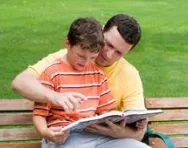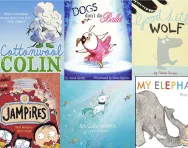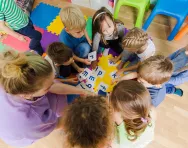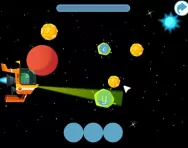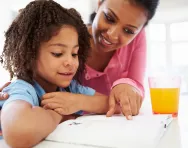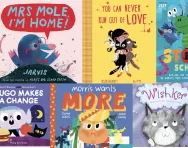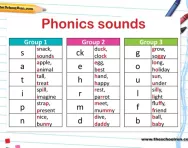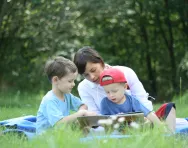Important update from TheSchoolRun
For the past 13 years, TheSchoolRun has been run by a small team of mums working from home, dedicated to providing quality educational resources to primary school parents. Unfortunately, rising supplier costs and falling revenue have made it impossible for us to continue operating, and we’ve had to make the difficult decision to close. The good news: We’ve arranged for another educational provider to take over many of our resources. These will be hosted on a new portal, where the content will be updated and expanded to support your child’s learning.
What this means for subscribers:
- Your subscription is still active, and for now, you can keep using the website as normal — just log in with your usual details to access all our articles and resources*.
- In a few months, all resources will move to the new portal. You’ll continue to have access there until your subscription ends. We’ll send you full details nearer the time.
- As a thank you for your support, we’ll also be sending you 16 primary school eBooks (worth £108.84) to download and keep.
A few changes to be aware of:
- The Learning Journey weekly email has ended, but your child’s plan will still be updated on your dashboard each Monday. Just log in to see the recommended worksheets.
- The 11+ weekly emails have now ended. We sent you all the remaining emails in the series at the end of March — please check your inbox (and spam folder) if you haven’t seen them. You can also follow the full programme here: 11+ Learning Journey.
If you have any questions, please contact us at [email protected]. Thank you for being part of our journey it’s been a privilege to support your family’s learning.
*If you need to reset your password, it will still work as usual. Please check your spam folder if the reset email doesn’t appear in your inbox.
5 building blocks for early reading
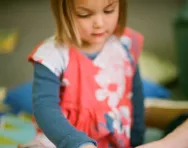
Anyone who’s ever sat down to read with a young child will know just how much they love books (often the same one, over and over again!). And encouraging an early passion for reading matters: according to various reports, an enjoyment of reading is more closely linked than family circumstances to academic success.
Yet worryingly, one in five of us don’t spend any time reading with our children, and over half of us spend less than 30 minutes on it per week.
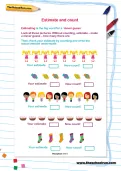
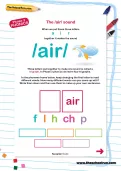
Unique Reception Learning Programme!
- Weekly maths & English worksheets direct to your inbox
- Follows the National Curriculum
- Keeps your child's learning on track
It’s never too early to start building the foundations for a life-long love of reading. In fact, the first three years of a child’s life are critical for language development. Talking, storytelling and reading books to your child will help develop their listening, vocabulary, communication and comprehension skills, instilling an enthusiasm for reading prior to starting school.
Reading can also help to nurture creative and imaginative thinking, relationship building, empathy and acceptance of others, self-confidence, and improve wellbeing, too, so where should you start?
Building block 1: start sharing words – both written and spoken
Between the ages of 18 months and three years, children experience an explosion of new words. Sharing books and traditional nursery rhymes at this stage exposes them to a greater variety of words and a richer vocabulary.
As parents we can start by focusing on the building blocks for reading in the early years. These include speaking and listening lots in everyday life: making sure you ask your child questions that encourage them to respond and learn new words, for example, ‘Would you like an apple or an orange?’ Or for older children, ‘How does it taste? What do you like best?’
Sharing songs and rhymes is also a vital building block for learning to read using phonics, which begins at pre-school and Nursery and continues through Reception, Year 1 and Year 2. Nursery rhymes are deliberately structured like mini-stories with a start, middle and end so children can learn the features of these quickly and with ease.
Building block 2: a healthy reading ‘diet’
When we think about reading to our children, many of us automatically think of bedtime stories and fairytales. But it’s important to give your child access to lots of different books from an early age, and to think about reading at home in a wider sense.
Try to ensure you have a supply of books in every room: fiction, non-fiction, poetry and more. You might find that a child who won’t sit still to read a book will listen with enthusiasm to a punchy poem or a short story from a comic, or that reading a story while they’re on the loo keeps their attention.
To keep your child interested, balance books with characters from their favourite TV shows with stories from classic and contemporary picture book authors. Why not visit the local library or arrange a book swap with your friends? Greater exposure to books means as your child grows they will make more independent reading choices.
As you read with your child, they'll begin to learn the conventions of reading such as turning the pages, reading from left to right, understanding the purpose of words and pictures and, later, beginning to recognise letters and sounds in the words on the page.
Building block 3: storytelling
Storytelling is another important step in developing a love of reading. It isn’t the same as reading a book; it’s part of our heritage. People have been telling stories since the beginning of time, passing them on orally from person to person.
Creating your own stories with your child is great fun; it’s quick and easy to do, involves lots of imagination and only needs the two of you to make it happen. It’s ideal on long journeys or in doctors’ waiting rooms when you need to keep your child quietly occupied.
There are lots of ways to do this, such as:
- Asking your child to come up with an imaginary character to be the star of the story.
- Taking it in turns to make up one line each, in the style of Consequences, but verbally rather than in writing.
- Taking the basics of a well-known story and reinventing the ending: what would have happened if the Billy Goats Gruff tried to swim across the river?
- Writing a story in a notebook, featuring the members of your family. Get your child to illustrate it.
Building block 4: word games
Playing with language will give your child confidence with the spoken word, and will also help them develop an enthusiasm for the varied sounds and structures of the English language.
Traditional word games like I Spy are great for helping children to prepare for reading from a young age: if your child doesn’t yet know their letter sounds, you can spy things of a certain colour, or that make a particular noise. Later, you can progress to spying things beginning with a letter (using the phonic sounds) alongside a little clue if needed.
Building block 5: reading for purpose and pleasure
Children need to understand that reading is for purpose and pleasure. We need to be able to interact with the world around us, reading street signs, shopping lists, products, catalogues, maps, menus etc. But we also benefit from the relaxation and escapism of sitting down with a good book.
You can help your child understand the different ways we use reading by showing them examples. When you go shopping, write a simple list (apples, bread, milk, yoghurt) with a little sketch by each word so your child can ‘read’ the list and help you shop. If you’re travelling somewhere by train or bus, show them the timetable and their outbound and return tickets.
Equally important is for them to see you reading: this provides a great opportunity for them to learn through imitation. Why not introduce a 15-minute slot on a Sunday afternoon where you all sit down with a book? If you usually use a Kindle or other e-reader, make sure your child sees you reading a printed book occasionally, as this relates more closely to their reading experience.
Ensuring our children have exposure to these early building blocks for reading will help to equip them with the skills they need to become intelligent, independent and creative thinkers.
Reading Fairy classes and story events for preschool children are designed to develop crucial building blocks for learning to read and loving books, based on the latest research and best early years practice.
